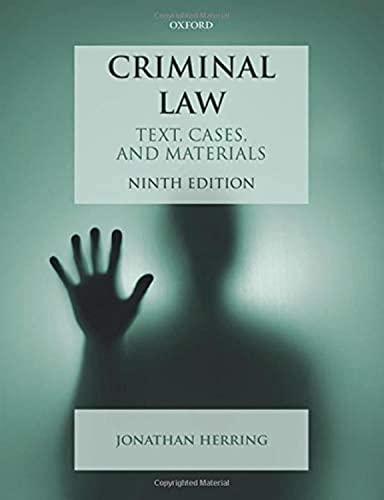Question
Imagine that the Police Chief is investigating whether a particular establishment is acting as a book lending library. The Chief sends an undercover police officer
Imagine that the Police Chief is investigating whether a particular establishment is acting as a book lending library. The Chief sends an undercover police officer to lurk near the suspected check-out desk to surreptitiously watch and report what occurs.
Later, the officer seeks to testify about a patron's interaction with a librarian. The officer testifies that the patron approached the checkout desk holding a book and stated, "I would like to check out this book." Is that out-of court statement hearsay if it is introduced to proved that the establishment is a library?
Consider next the related context where police arrest someone for drug dealing and the observe incoming text messages or calls requesting frugs on the suspect's phone. Can the officer testify that the drug dealer's phone lit up with a text message from an unknown person, "Are you carrying?" I need a refill."
Consider this quote from a Second Circuit case: "An assumption has a fair claim to be treated as non-hearsay since the attendant risks are not as intensively implicated as when the idea is directly enunciated in a statement." Can you translate the "fair claim" notion into an application of the federal hearsay definition?
Step by Step Solution
There are 3 Steps involved in it
Step: 1

Get Instant Access to Expert-Tailored Solutions
See step-by-step solutions with expert insights and AI powered tools for academic success
Step: 2

Step: 3

Ace Your Homework with AI
Get the answers you need in no time with our AI-driven, step-by-step assistance
Get Started


